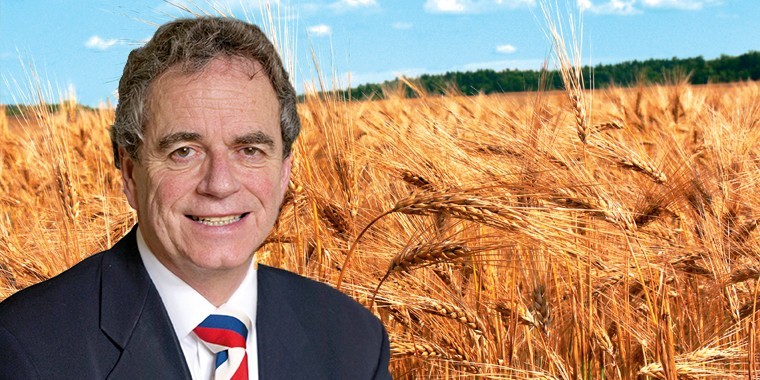A lot of traders are still attributing this to currency i.e. weak sterling. But it does not seem to be that simple any more. Since Brexit, currency moves – following political statements/trade figures – have been predictable, but not lately, or least not to the same extent. Our prime minster talked of a “hard Brexit” and the pound weakened, prices went up. A week later further comments about the UK adopting a tough stance on Brexit terms sent sterling the other way: it firmed and prices fell! Clearly currency is not the only market mover.
I have talked about the UK being in its own “trading bubble” and to a large extent since Brexit, it has been. It is now beginning to look as though the western European Union – including the UK – is also becoming detached from the rest of the over supplied and more predictable world.
So its not just the UK which has been protected from the cheap wheat and record global stocks. France we know had a very bad 2016 harvest. Latest figures suggest EU wheat production fell from 160 million tonnes in 2015 to 129 million in 2016: its stock to use ratio may be under 10%, the lowest figure for sometime. But within that France has a large tonnage of both wheat and barley which is almost unmerchantable because of low bushel weight. If our internal wheat price remains high some of that could find its way into the UK.
Outside of western Europe potential crops and actual physical stocks continue to get bigger. The United States Department of Agriculture is thinking that the world will have added to its already record stock by the end of June 2017 and we will be looking at 253 million tonnes of wheat tucked away, a very healthy 35% stock to use ratio.
There are other strange, contradicting things taking place. Russia seems to be in an unusually comfortable place with stacks of wheat to sell and seemingly no pressure or need to sell to obtain hard currency or create storage space. Its currency is at an 18 month high.
China seems to be defying logic and gravity and appears to be delivering on its boast that it really does have half the stocks of world maize and wheat, and it’s using them. As the biggest pig meat producer in the world, it’s crushing enormous quantities of soya. I only wish it would import some more feed barley.
In the US, wheat farmers seem to have had enough of planting crops which are eventually sold at below the cost of production, with two million acres not planted. This also contributed to the recent rise in wheat prices. But the reality is that those acres will be planted, with either maize, soya or maybe spring wheat, so it’s still bearish.
It’s a bit like all the fuss about the below freezing temperatures and lack of snow fall, particularly in Russia and eastern Europe. The “bulls” always roll out “winter kill” about now but it never usually has any effect long term. Again most regions can top up with spring plantings anyway.
So recent events have shown that currency movements can make fools of all of us and make the best sales look poor. Apart from the blip of lower wheat plantings in America, the world fundamentals on wheat and maize remain bearish. The UK wheat market remains tight on old crop, and if you have some left to sell, keep cashing it in. There is no reason for the new crop values to be where they are – without some crop disaster – and there isn’t one on the radar.
Feed barley has at last followed wheat and is worth selling for the first time since harvest but barley deserves a word of caution. We still have an exportable surplus of circa 500,000 metric tonnes to clear before harvest. Openfield will export a big chunk of that as malting barley.
That will still leave a surplus of feed barley, some of which is low bushel weight. While the EU has less wheat to export, it’s produced a lot more barley than it can hope to use or export. The UK spring barley planting could be up 10% so disposing of old crop before we get too close to harvest is advisable – as is the selling forward of spring malting barley at the very good values on offer for 2016 and 2017.
Lastly, President Trump has indicated now that the UK should be at the front of the queue when it comes to negotiating trade deals with the US. President Obama said we would be at the back of the queue. What he didn’t know is the British are really very good at queuing: in fact we could win Olympic gold medals for it.




